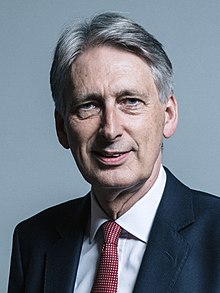
A Digital Tax aimed at Amazon, Google, Facebook and others

The Digital Services Tax will be effective from April 2020. It has been set at an initial 2% of the revenues of very large tech companies. In his statement, the chancellor said it will apply to: “certain digital businesses to ensure that the amount of tax paid in the UK is reflective of the value they derive from their UK users”
This is about the large tech companies such as Amazon, Google, Facebook and others who are accused of tax avoidance and evasion. At 2%, the chancellor believes it will generate around £400 million in the first year. The expected yield is very low compared to the revenue those companies generate in the UK. It will be interesting to see if it gets adjusted between now and when it goes live.
The budget document states that the tax will:
- apply to revenues generated from the provision of the following business activities: search engines, social media platforms and online marketplaces
- apply to revenues from those activities that are linked to the participation of UK users, subject to a £25 million per annum allowance
- only apply to groups that generate global revenues from in-scope business activities in excess of £500 million per annum
- include a safe harbour provision that exempts loss-makers and reduces the effective rate of tax on businesses with very low profit margins
Will this solve the tax avoidance problem?
Large organisations spend a lot of money minimising their tax spending. Directors see this as part of their duties to shareholders. They rightly take advantage of gaps in international law to move monies to the lowest possible tax domain. This new tax will not change that.

According to Leon Deakin, Partner on the tech team at law firm Coffin Mew: “Announcing a crackdown on tax avoidance and evasion by the tech giants will certainly play well to the public gallery. Following the recent data breaches and revelations about how data is handled the public mood is clearly to try and bring them down a peg or two.
“However, for sector specialists, those working with tech start-ups and businesses looking to scale-up, the devil will inevitably be in the detail as to how the system will be ‘carefully designed’ to ensure the burden is shouldered by the giants. With Brexit looming the tech sector will remain a key part of our economy and anything which could depress or dampen that buoyant area of the market must be approached with caution.”
Deakin is not the only one unimpressed with this new tax. UKFast CEO Lawrence Jones MBE, CEO of Manchester-based hosting firm UKFast said: “The Chancellor talks of the hard work of the British people, but the hard work of our businesses and workers is completely undermined when we lose billions of pounds in tax revenue from the US tech giants.

“It’s way beyond time for action on the pitiful amount of tax paid by the likes of Facebook, Amazon and Google, so I congratulate the Chancellor on taking this first step. If all UK businesses took advantage of the tax rules that apply to off-shore businesses, the country would collapse. It’s the tax-paying entrepreneur that props up this country and it’s time for these tech giants to pay their share.
“As business leaders we have a responsibility to give back to the country and to nurture the community around us. I look at the UK’s booming tech industry and I’m proud of the way we are able to contribute, but it has to be a level playing field if we want to achieve the strong digital future that Hammond wants to see.”
Yet another promise to improve broadband
Promises to improve broadband and introduce fibre networks are pretty standard these days. This budget, like its predecessors and other government reviews, continues that tradition. In July, the Future Telecoms Infrastructure Review promised a nationwide full fibre network. The catch? It will take until 2033 to achieve it. By then, 5G and its successors will deliver a faster service than is currently envisaged.
Alongside the budget, the government also moved to ensure that tenants, both private and commercial, have access to broadband. This will require landlords to allow tenants to install new fibre lines. If they don’t, magistrates courts can give communications companies the right to access properties to upgrade telecoms.
According to the budget document the next steps are:
- the Budget allocates £200 million from the NPIF [National Productivity Investment Fund] to pilot innovative approaches to deploying full fibre internet in rural locations, starting with primary schools, and with a voucher scheme for homes and businesses nearby. The first wave of this will include the Borderlands, Cornwall, and the Welsh Valleys
- alongside the Budget, the government is publishing consultations to mandate gigabit-capable connections to new build homes and speed up the delivery of upgraded connections to tenants, making it quicker and easier for communications providers to roll out full fibre networks
- the government is also announcing that Suffolk is the first local area to be awarded £5.9 million of funding from the third wave of the Local Full Fibre Networks challenge fund, enabling next-generation full fibre connections to key public buildings
Will this really help rural communities and businesses?
Eventually, but not in the short term. Mobile technology such as 5G is more likely to resolve the problem for individuals and small businesses in those areas. The government needs to do much more to solve this for those communities. It is pushing ahead with its Make Tax Digital project. This will require all rural businesses to have access to broadband to ensure that they file VAT returns automatically by next year. After that, companies have to integrate all their PAYE and other tax data with online systems.

According to Phil Hall, Head of Public Affairs & Public Policy, Association of Accounting Technicians (AAT) said: “The new MTD requirements legally oblige all businesses with a turnover above the VAT threshold to digitally provide four quarterly tax updates a year from next April – with smaller businesses and individuals being required to comply at a later date. It’s essential that businesses and the self-employed have the broadband capability to do this but in many rural and remote areas this simply isn’t the case.
“Today’s announcement is another step in the right direction but there’s much more to be done to ensure we become a truly connected society.”
What does this mean
The Digital Services Tax would look better if it was intended to raise more money. At the moment it seems to be set very low compared to the monies made by those companies Hammond is targeting. Setting it at the same rate as Corporation Tax or at least choosing a more realistic figure such as 10% would have played better to the public. These companies are not going to cease doing business in the UK, they make too much money.
Broadband is a different problem. No UK government seems to understand what is required or how to deliver it. The UK continues to fall behind other countries when it comes to connectivity both fixed line and mobile. Part of the problem is the vast amount of cable in the ground and the need to upgrade infrastructure. However, the small amount of money being released to drive this forward and setting a date of 2033, likely to be moved again, is not a solution.
These are two measures where Hammond could and should have done more. It will be interesting to see what he does once the Brexit situation is resolved. The constant chatter of a Brexit dividend might, if it exists, provide the funds to accelerate broadband deployment. He could also have ring fenced the monies from the Digital Services Tax for the Health Service. This would have given him a lot of public support for a higher rate of tax.























